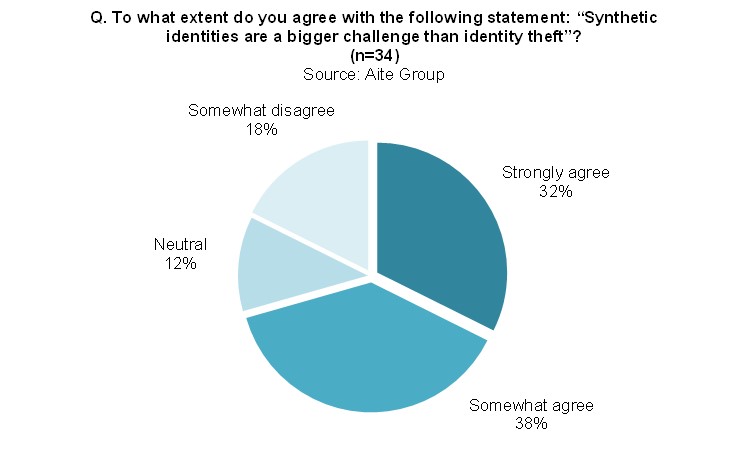Boston, February 9, 2021 – Synthetic identity fraud is a pernicious issue that results when criminals fabricate identities to establish new accounts or lines of credit. Synthetics are hard to detect, and losses due to synthetic attacks are often written off as credit losses. The U.S. market is one of the hotbeds of synthetic identity fraud, given the historical lack of a centralized source of truth for consumers’ identities. While regulators and legislators are focusing on the issue, many firms are also investing in technologies to help better identify synthetic fraudsters at the time of application as well as those lurking in existing portfolios.

This report, sponsored by TransUnion, defines synthetic identity fraud, sizes its impact on the U.S. unsecured credit market, and discusses best practices to address it. To inform the research, Aite Group surveyed 46 North American fraud executives in September 2020. The report also includes input and insights from ongoing Aite Group conversations with fraud executives at financial institutions and fintech lenders.
This 19-page Impact Report contains nine figures and three tables. Clients of Aite Group’s Fraud & AML service can download this report, the corresponding charts, and the Executive Impact Deck.
About the Author

Julie Conroy
Julie Conroy serves as the Chief Insights Officer for Datos Insights. Prior to Julie’s tenure at Datos Insights, she had more than a decade of hands-on product management experience working with financial institutions, payments processors, and risk management companies. She spent a number of years as Vice President of Product Solutions with Early Warning Services, where her team managed a...
